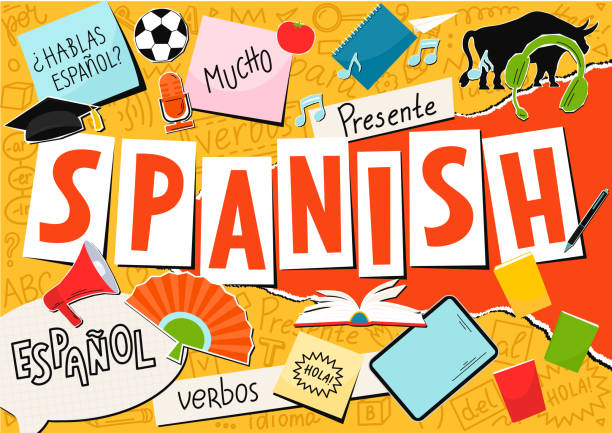Learn Italian Language in Delhi NCR | Best Italian Classes in Delhi
Where Can I Learn the Italian Language in Delhi NCR? Introduction Italy is known for its rich history, art, cuisine, and of course, its melodic language—Italian. Learning Italian opens doors to a whole new world of culture, career opportunities, and personal growth. If you’re in Delhi NCR and wondering where to start, this blog will guide you. From understanding the beauty of the Italian language to choosing the best institute, let’s embark on this exciting journey together. What is the Italian Language? Italian, or la lingua italiana, is a Romance language derived from Latin. Spoken by over 85 million people worldwide, it is the official language of Italy, San Marino, and the Vatican City. It’s also widely used in Switzerland, Slovenia, and parts of Croatia. Known for its musical rhythm and expressive gestures, Italian is often considered one of the most beautiful languages in the world. Learning Italian is more than acquiring a new skill—it’s a gateway to understanding Italy’s art, literature, fashion, and culinary delights. Imagine reading Dante’s Divine Comedy in its original form or ordering pasta in fluent Italian during a trip to Rome! Experience Italy’s Extraordinary Culture and Learn Italian! Learning a language is more than memorizing vocabulary and grammar; it’s about embracing a culture. Italian, with its charm and history, gives learners a taste of Italy’s vibrant lifestyle. Exploring Italian Cuisine: Know the difference between carbonara and bolognese. Appreciating Art and Architecture: Understand the Renaissance better through Italian texts. Connecting with People: Speak the language and bond with locals in Italy. Whether you’re a traveler, art enthusiast, or a professional, Italian can add immense value to your life. Italian Courses and Curriculum When choosing to learn Italian, it’s essential to opt for a structured course. The Italian curriculum is generally divided into levels as per the Common European Framework of Reference for Languages (CEFR): A1 & A2 (Beginner): Basic communication, greetings, and everyday conversations. B1 & B2 (Intermediate): Enhanced grammar, conversational skills, and cultural nuances. C1 & C2 (Advanced): Near-fluent proficiency, in-depth understanding of Italian culture and literature. At Studiamo, the courses are designed to cater to all levels—whether you’re a beginner starting with “Ciao” or an advanced learner aiming to perfect your fluency. Careers for Italian Speakers Learning Italian is not just a hobby—it can significantly boost your career. Some of the top career options for Italian speakers include: Tourism and Hospitality: Work as a travel guide or in Italian-speaking regions. Translation and Interpretation: High demand in embassies, international events, and businesses. Teaching: Become an Italian language trainer. Corporate Jobs: Companies dealing with Italian clients often need bilingual employees. Cultural Exchange Programs: Work with Italian artists, musicians, and chefs. By mastering Italian, you can also explore opportunities in international trade, diplomacy, and entertainment industries. Studiamo: The Best Italian Language Institute in Delhi If you’re in Delhi NCR and looking for the best place to learn Italian, Studiamo is your answer. Known for its expert trainers and immersive teaching methods, Studiamo has carved a niche in language training. Know About Studiamo At Studiamo, learning Italian is a blend of language skills and cultural exposure. Here’s why Studiamo stands out: Expert Trainers: The faculty includes certified professionals with years of experience. Interactive Classes: Classes are fun, engaging, and focus on conversational Italian. Flexible Timings: Whether you’re a student or a working professional, Studiamo offers convenient batch timings. Cultural Activities: Participate in Italian film screenings, cooking sessions, and cultural events. Placement Assistance: Studiamo helps students explore career opportunities after course completion. Studiamo believes in making learning Italian a delightful experience for all its students. Courses Offered at Studiamo Beginner Courses: Perfect for those with no prior exposure to Italian. Intermediate Courses: For learners who want to enhance their skills. Advanced Courses: Designed for professionals aiming for fluency. Custom Modules: Tailored courses for specific needs like business communication or travel. Visit their website at Studiamo.in to explore the courses and enroll today! Why Choose Studiamo? Here are some key highlights that make Studiamo the top choice for Italian learners in Delhi NCR: Affordable Fees: Competitive pricing for high-quality education. Small Batch Sizes: Personalized attention to each student. Practical Approach: Focus on speaking and listening skills through real-life scenarios. Comprehensive Material: Access to books, audio clips, and online resources. Cultural Immersion: Learn not just the language but the Italian way of life. Wrap Up Learning Italian in Delhi NCR has never been easier with institutes like Studiamo leading the way. Whether you’re pursuing it for professional growth, cultural fascination, or personal enrichment, Studiamo ensures a seamless and enjoyable learning journey. So why wait? Take your first step toward speaking Italian like a native. Visit Studiamo.in today and start your Italian adventure! More than 2 results are available in the PRO version (This notice is only visible to admin users) Latest Articles Language CoursesLearning Tips Learn Italian Language in Delhi NCR | Best Italian Classes in Delhi December 3, 2024 / Institutes In Delhi Language CoursesLearning Tips Learn Spanish Language in Delhi NCR | Best Spanish Classes Near You December 3, 2024 / Institutes In Delhi Language Courses Top German Language Institutes in Delhi: Your Guide to Learning German November 27, 2024 / Institutes In Delhi Bank POBanking ExamsCompetitive Exams IDBI Bank Junior Assistant Manager and Agri Asset Officer Recruitment 2024 November 21, 2024 / Institutes In Delhi Competitive ExamsUGC/NET NTA UGC NET / JRF December 2024: Apply Online for January 2025 Exam November 21, 2024 / Institutes In Delhi Related Articles Competitive ExamsCurrent AffairsJobs Railway NTPC 10+2 Under Graduate Level Post Recruitment 2024: A Comprehensive Guide September 26, 2024 / Institutes In Delhi JobsSSC & CGL High Court of Punjab and Haryana Peon Recruitment 2024 September 7, 2024 / Institutes In Delhi











